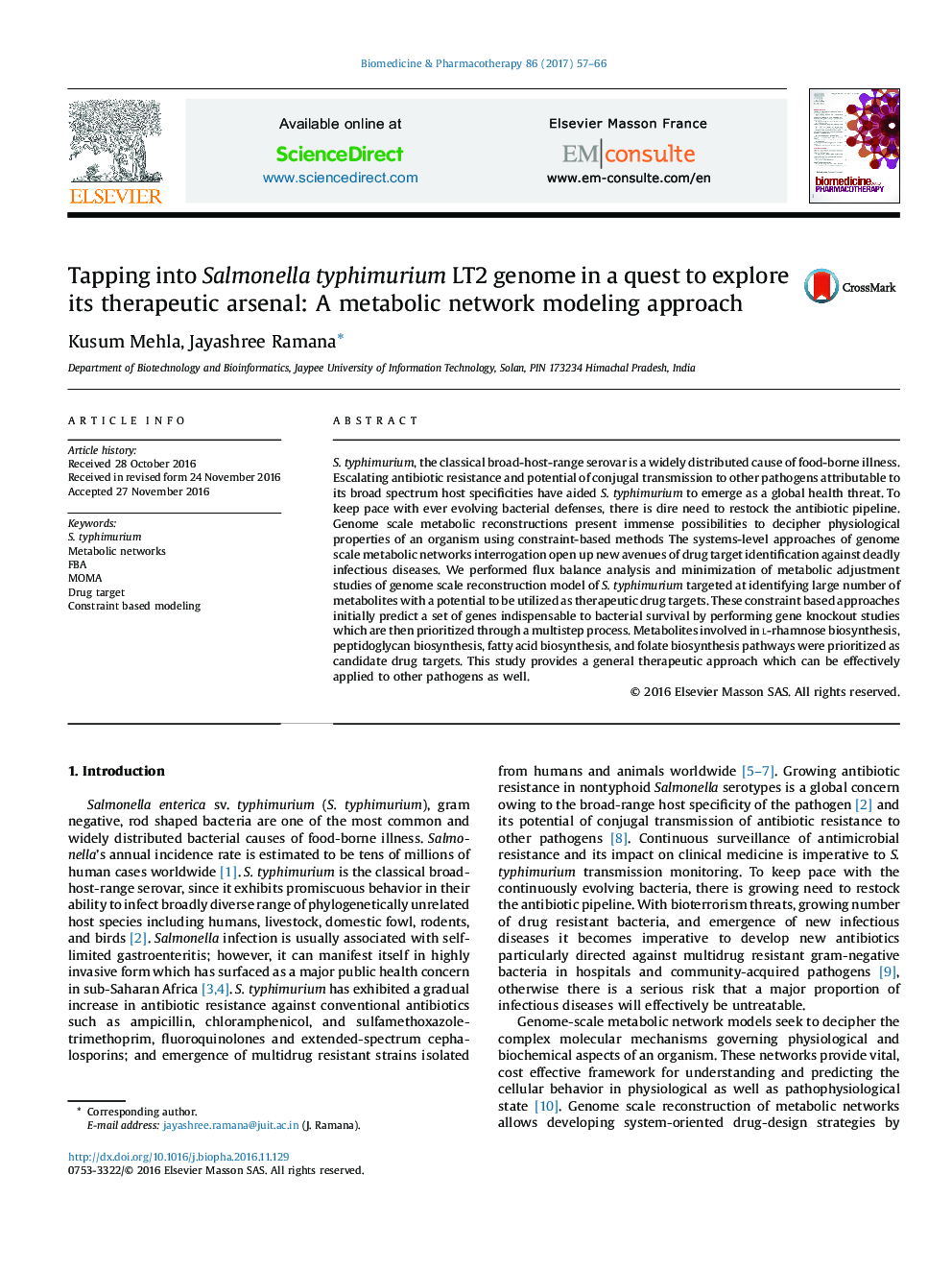| کد مقاله | کد نشریه | سال انتشار | مقاله انگلیسی | نسخه تمام متن |
|---|---|---|---|---|
| 5553522 | 1557956 | 2017 | 10 صفحه PDF | دانلود رایگان |

S. typhimurium, the classical broad-host-range serovar is a widely distributed cause of food-borne illness. Escalating antibiotic resistance and potential of conjugal transmission to other pathogens attributable to its broad spectrum host specificities have aided S. typhimurium to emerge as a global health threat. To keep pace with ever evolving bacterial defenses, there is dire need to restock the antibiotic pipeline. Genome scale metabolic reconstructions present immense possibilities to decipher physiological properties of an organism using constraint-based methods The systems-level approaches of genome scale metabolic networks interrogation open up new avenues of drug target identification against deadly infectious diseases. We performed flux balance analysis and minimization of metabolic adjustment studies of genome scale reconstruction model of S. typhimurium targeted at identifying large number of metabolites with a potential to be utilized as therapeutic drug targets. These constraint based approaches initially predict a set of genes indispensable to bacterial survival by performing gene knockout studies which are then prioritized through a multistep process. Metabolites involved in l-rhamnose biosynthesis, peptidoglycan biosynthesis, fatty acid biosynthesis, and folate biosynthesis pathways were prioritized as candidate drug targets. This study provides a general therapeutic approach which can be effectively applied to other pathogens as well.
Journal: Biomedicine & Pharmacotherapy - Volume 86, February 2017, Pages 57-66